What does it mean to be a Responsible Tourist and why is it so important?
The tourism sector is one of the biggest industries worldwide. In 2019, travel and tourism directly contributed approximately 2.9 trillion U.S. dollars to the global GDP.
If we keep traveling irresponsibly however, more animal species will go extinct, more people will lose their homes and some of the most beautiful destinations around the world will (simply put) eventually disappear.
Enter Responsible Travel. If done ethically, tourism has the potential to support local communities, our environment and the planet’s wildlife.
(Some links in this post may be affiliate links. If you make a purchase through one of these links, we may earn a small commission at no extra cost to you. Please see our disclosure policy for more detail.)
Table of Contents
What Is Responsible Tourism?

According to the declaration of the Cape Town Conference on Responsible Tourism, which took place in 2002 as a side event preceding the World Summit on Sustainable Development in Johannesburg,
Responsible Tourism:
- minimizes negative economic, environmental, and social impacts;
- generates greater economic benefits for local people and enhances the well-being of host communities, improves working conditions and access to the industry;
- involves local people in decisions that affect their lives and life chances;
- makes positive contributions to the conservation of natural and cultural heritage, to the maintenance of the world’s diversity;
- provides more enjoyable experiences for tourists through more meaningful connections with local people, and a greater understanding of local cultural, social and environmental issues;
- provides access for physically challenged people;
- and is culturally sensitive, engenders respect between tourists and hosts, and builds local pride and confidence.
Basically, as a responsible tourist you leave the place better than you found it.
Responsible Tourism Tips + Examples of Responsible Tourism
I bet you already travel responsibly in some ways, maybe even without knowing it.
Do you learn a few basic words in the local language before you embark on your journey? Do you make an effort to understand the culture? Yep, there we go, these are habits of the responsible tourist.
Unfortunately, that also works the other way around – you possibly sometimes make mistakes without being aware of the consequences. Ever paid for a tourist attraction that included animals? Chances are high that you didn’t help by doing that.
But hey, we live and we learn, right? Now we want to make sure we don’t repeat old mistakes, but use the tourism industry to make a difference in our planet’s and its people’s favor.
There are a couple of really easy things you can do to become a more responsible tourist.
1. Come Prepared

Before you go, research political, social, economic and environmental issues.
What is moving the country you are visiting at the moment?
Are there sensitive topics that you should read up about before you put yourself and others in an awkward position?
Also, inform yourself about the culture. Is is considered rude to touch the head of another person in Thailand, a no-go to use red ink in South Korea or totally okay to hang out with your friends on cemeteries in Denmark?
Whatever the case, you ideally know the most important things.
2. Learn Basic Words In The Local Language

Knowing a few basic words of the language not only potentially saves your day, it also shows respect and interest.
The happiest faces I’ve seen when traveling were reactions to my attempts to form a sentence in a random language I don’t speak.
If you are visiting a place where your languages are not commonly spoken, consider learning a few sentences with an app (e.g. Duo Lingo) or bring a good old for dummies book.
3. Respect The Culture
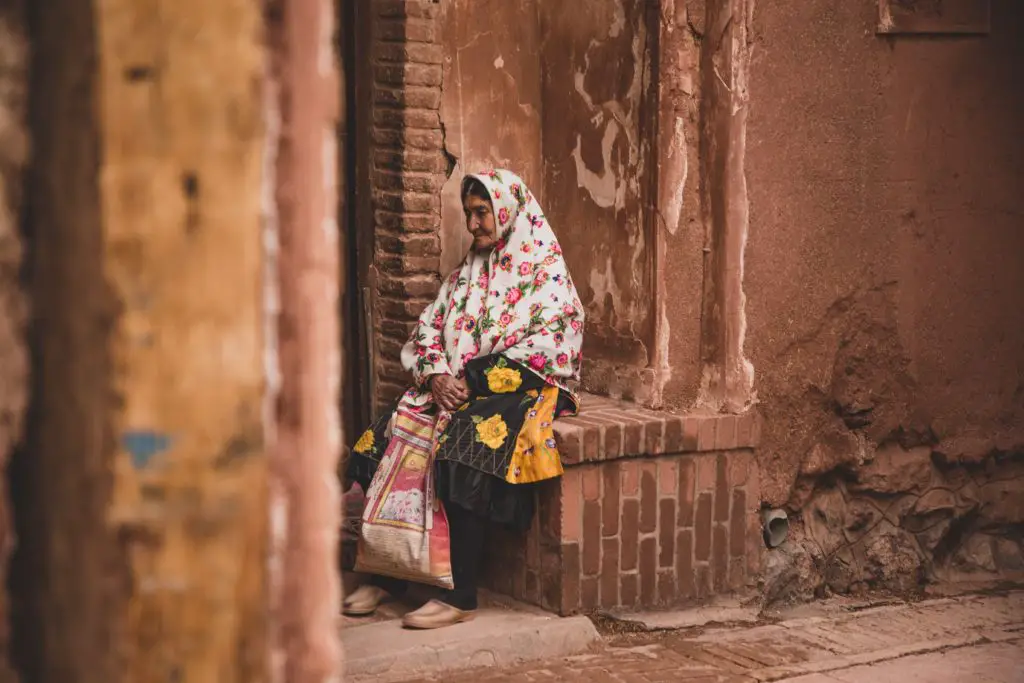
In general, it doesn’t really matter if you agree or disagree with the culture of a country or region.
If you for example travel a more conservative country where it is expected of women to cover up, do it.
If public affection is seen as inappropriate, don’t do it. You are the guest here, so you need to respect your hosts.
Being a responsible tourist means to treat others like you would like to be treated in your country.
4. Don’t Support Animal Tourism
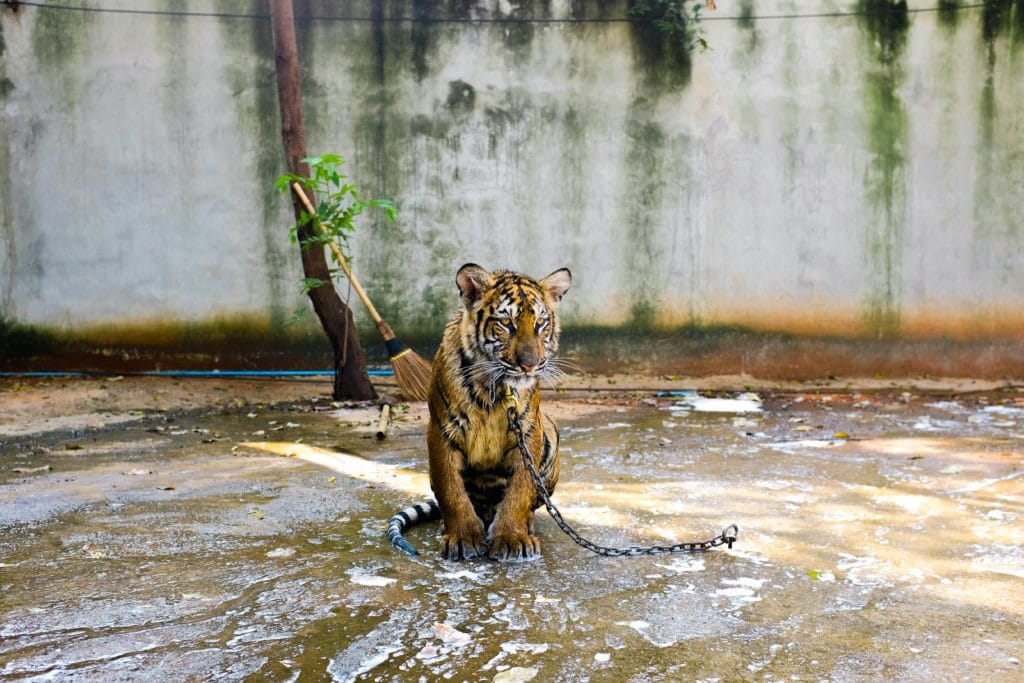
One of the easiest traps to fall into when traveling is animal tourism. Animals are abused for entertainment worldwide and unfortunately, it is often the people who consider themselves animal lovers who unknowingly support the cruel practices of animal tourism operators.
According to an Oxford study commissioned by the World Animal Protection, the ten cruelest types of animal tourism are elephant riding, taking selfies with tigers, bear parks, walking with lions, holding sea turtles, dolphin shows, civet cat coffee plantation tours, dancing monkeys, performing cobras and crocodile farms. Don’t do it.
So, what should you look out for when it comes to animal encounters on your travels?
Truly ethical operators do not get too close to animals. If you can touch, ride or take selfies with ‘wild’ animals, stay away from the tour.
Safaris and scuba diving on the other hand allow you to watch wild animals in their natural habitat from a distance.
Before you book anything, always do in-depth research about the operator.
5. Support Local Businesses
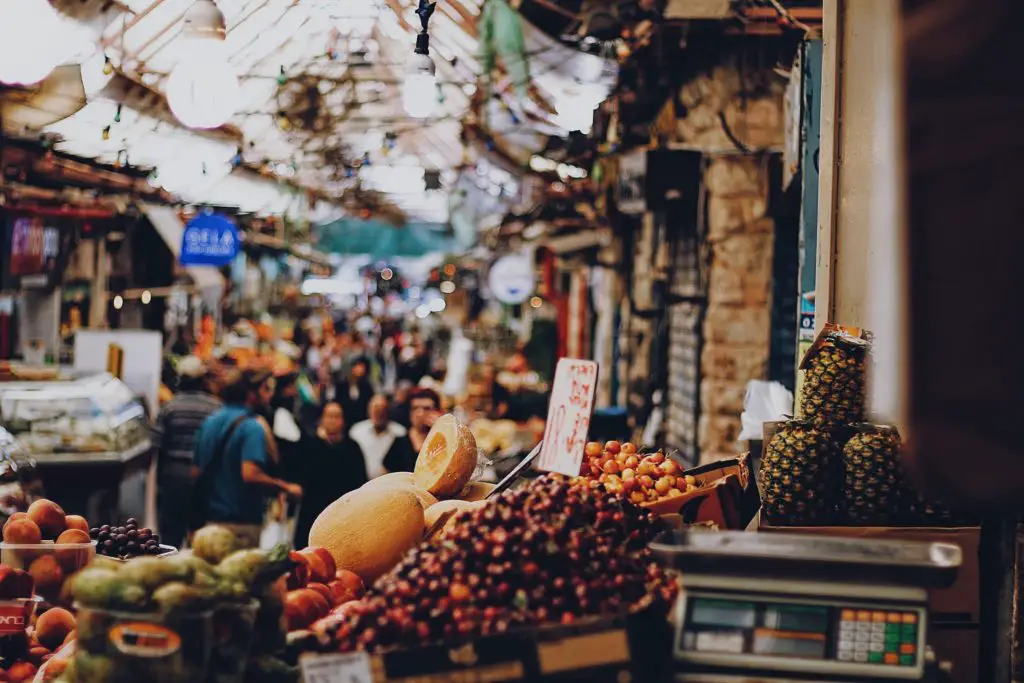
Being a responsible tourist means spending money in the right places.
My favorite way of doing that is visiting local markets. Buying your food here is not only the freshest and most delicious option, it also allows you to know exactly where you’re money is going.
At the same time, this is a great way to learn more about the culture and a country’s traditional dishes. Plus, you might even make some new friends.. A classic win-win situation.
Make sure you also purchase all kinds of souvenirs in local businesses.
6. Be A Responsible Photographer

Travel photography is the best way to help you remember all the beautiful places you’ve seen and people you’ve met.
But keep in mind that it is highly disrespectful to just walk around and take pictures of other people without their consent. You are not in a zoo – they a humans just like you (Rhyme not intended but hey, maybe it helps you remember this one).
7. Avoid Plastic
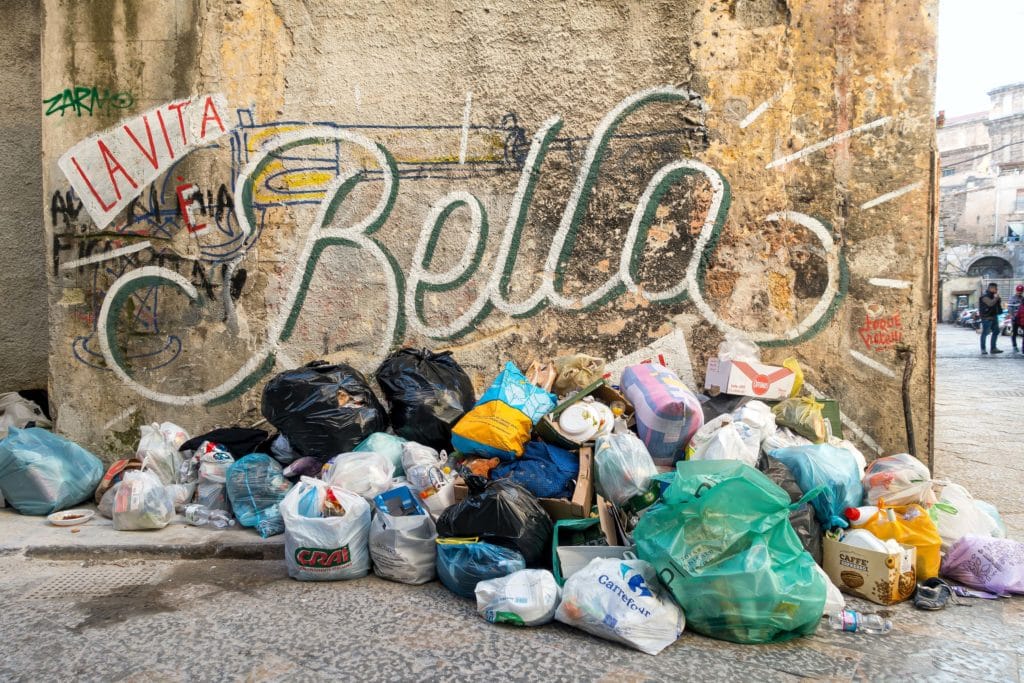
Depending on where you are, it is possible that locals will have a different understanding of plastic usage and its disposal than you. Don’t get annoyed or angry when you are given a plastic bag for the thousandth time – just stay polite and say NO.
To avoid unnecessary plastic wrappings around fruits and veggies in supermarkets, try to purchase fresh food on local markets.
Bring your own coffee mug and reusable containers for meals instead of getting take-away in disposable boxes.
8. Book Tours With Responsible Companies
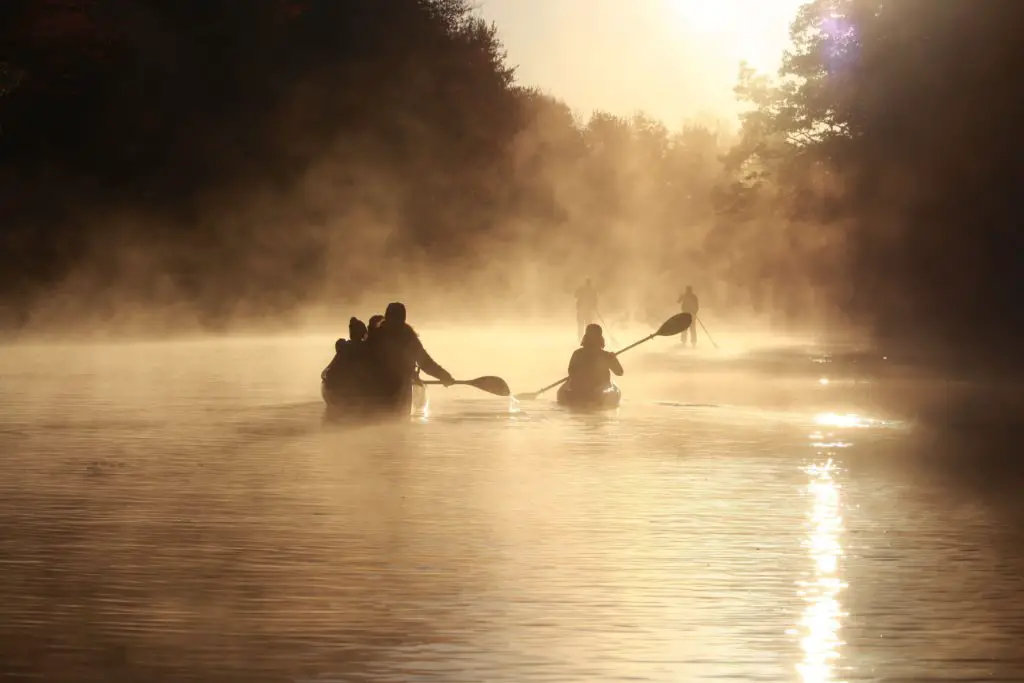
‘Eco’ is on the rise. The term is becoming more and more popular and these days you can find it on websites of hotels, restaurants and tour operators throughout the world. But what seems to be the perfect opportunity to support sustainability while making memories unfortunately often doesn’t keep the promise.
Companies do what you call greenwashing – they use the power word ‘eco’ in front of whatever they offer in order to attract more customers.
To make sure that you are really ‘doing your bit’ to help the planet instead of falling for a fraud, ask questions. Don’t be shy and take your time. If the tour operator is truly responsible, they will enjoy telling you whatever you would like to know.
You can ask the following questions:
- How do they minimize their ecological footprint? (Do they boycott single-use plastic? Do they use renewable energy? Do they recycle?)
- Who benefits from your travels/ you participating in this tour? (Do they for example cooperate with a small local business? Do they employ locals? Do they pay fair wages?)
- How do they give back to the places that you will be exploring during the trip?
- Who owns the company and where will your money go?
9. Avoid Planes
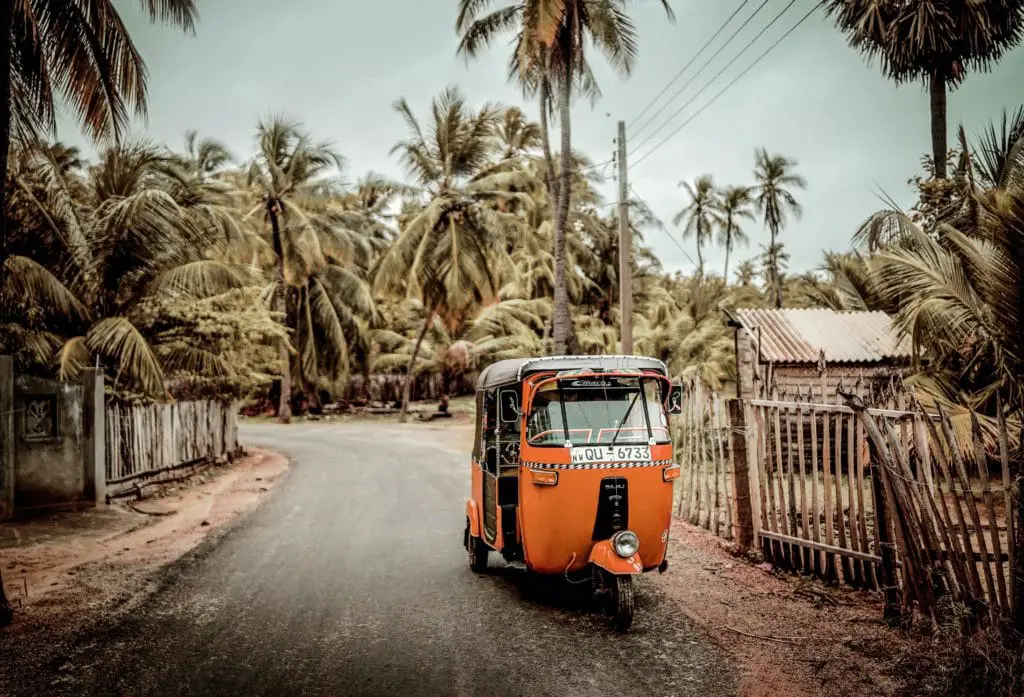
Sometimes, flights are necessary in order to get from A to B. But before you decide to hop on a plane to get to your destination, think about alternatives. Is there maybe an overnight train that you could take? Is car-sharing an option? If you have time and a thirst for adventure, why don’t you hitchhike there?
And to bring up an even more uncomfortable question: Do you really need to visit that country on the other side of the world? If you only have one week of vacation, wouldn’t it also be an option to explore your own backyard, and by backyard I mean your own country and its neighbors?
If the international long distance flight couldn’t be avoided, try to minimize your ecological footprint when you’re traveling around in the area. Instead of planes, take buses or trains or tuktuks or whatever else your country of choice has to offer. It’s also a great way to get to know the culture better.
10. Leave No Trace
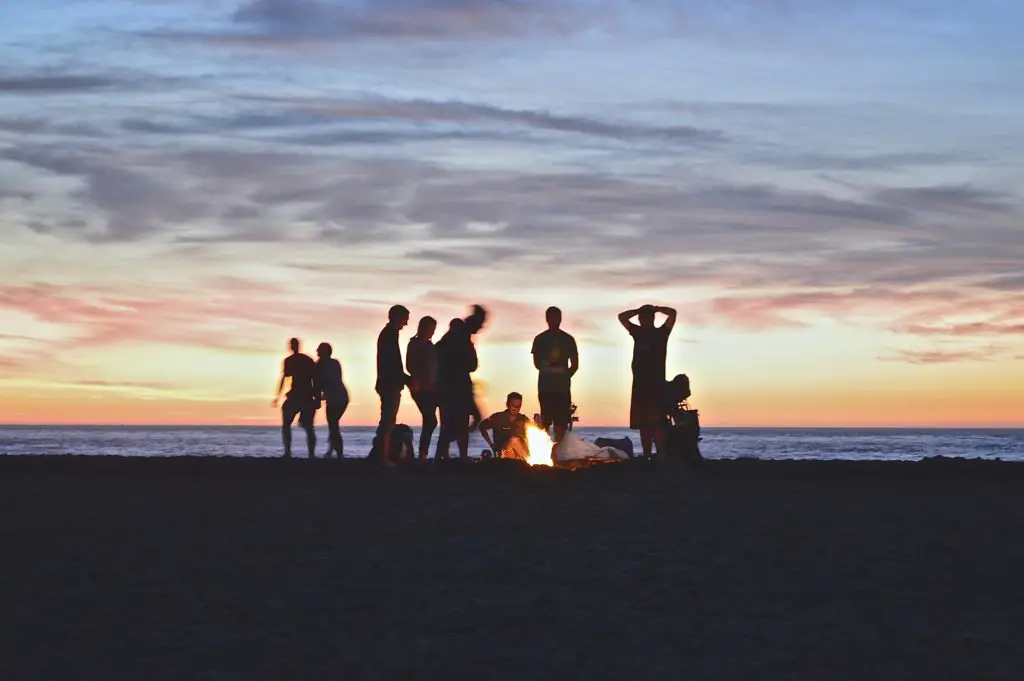
The concept is easy: ‘Take only pictures and leave only footprints’.
Leave No Trace is an international organisation that has set the global standard for outdoor ethics. Simply stick to the following 7 principles:
- Plan Ahead and Prepare
- Travel and Camp on Durable Surfaces
- Dispose of Waste Properly
- Leave What You Find
- Minimize Campfire Impacts
- Respect Wildlife
- Be Considerate of Your Hosts and Other Visitors
11. Communicate With The Locals

Getting to know a few locals will make your experience so much better. So. Much.
Take the local transport, shop in local businesses, and also visit less touristic areas if your schedule allows it. Even in the world’s tourist hot spots this will allow you to get to know a few locals (after all, what’s the point of traveling so far away if you don’t even get an impression of the real life there?).
If you visit a country rather off the beaten trek staying under the radar would be nearly impossible anyways.
12. Bring A Reusable Water Bottle
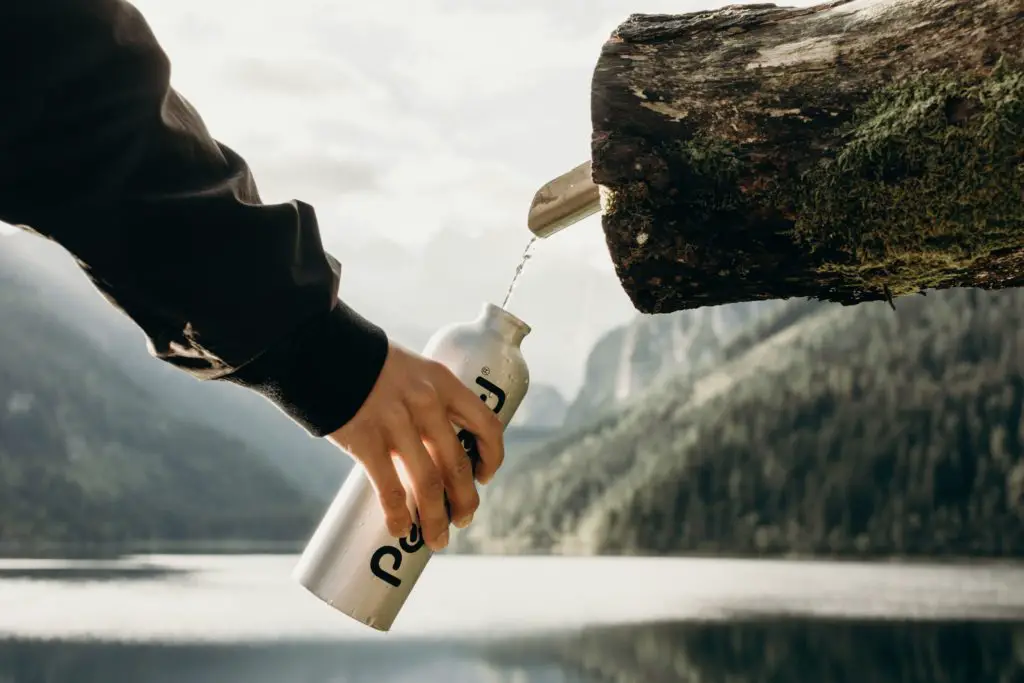
How many single-use plastic water bottles would you have gathered after only a week of traveling without your own reusable bottle? Let me tell you, too many.
Bringing your own water bottle not only saves you money and stress, it also reduces your plastic consumption by a lot.
If you find yourself in a country where drinking tap water is not advised, water purification tablets will do the job.
13. Stay In Eco-Friendly Accommodation

From small guesthouses to luxurious lodges, since ‘eco-friendly’ has become some kind of a trend, more and more accommodation owners claim to be ‘green’. But what exactly does that mean?
Before you make a booking, check their website or ask the employees the following questions:
- Are they certified? (For more info, check this guide to sustainable hotel certification schemes)
- Do they recycle?
- Do they use renewable energy?
- Do they minimize their water consumption?
- How much of the food they serve is sourced locally?
- Do they promote low carbon travel?
Our tip: Check out Ecobnb!
14. Don’t Feed Wild Animals
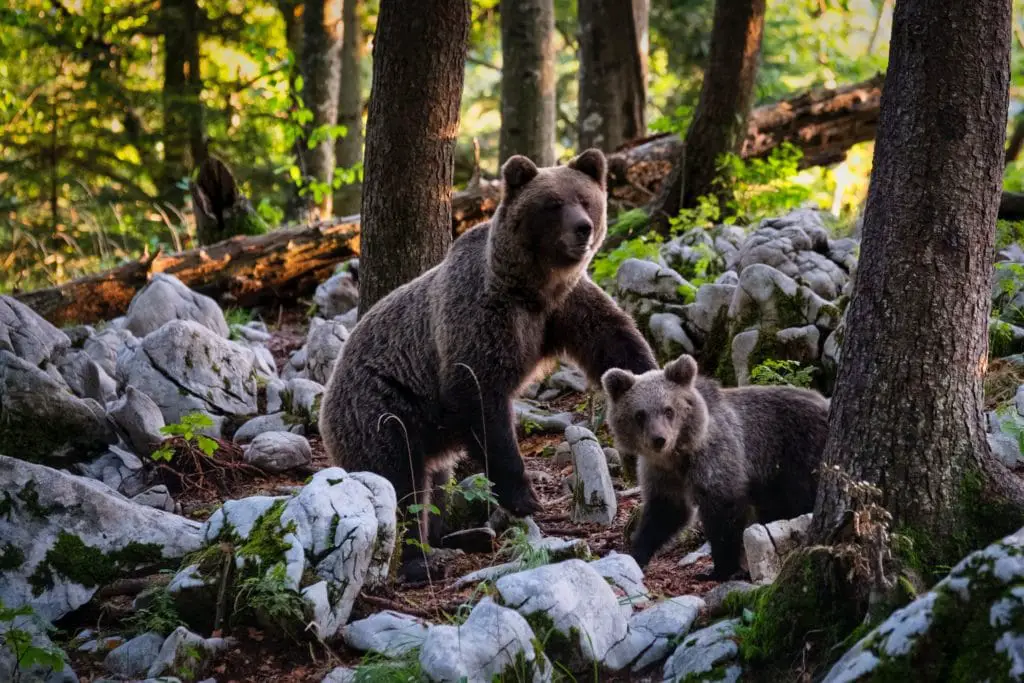
A fed bear is a dead bear. And same goes for all other wild animals.
When they start to associate humans with food, they become less careful and put themselves in dangerous situations. They are for example more likely to get hit by cars when crossing the road or have to be put down by rangers because they got too close to children or pets.
Animals might also develop disease as the food they are fed by tourists often doesn’t meet their nutritional needs.
Moreover, feeding of wild animals in particular areas can cause competition and thus injuries and death.
15. Don’t Waste Water

Never waste water. Especially if you travel countries where water is scarce, like South Africa, being a responsible tourist is very important.
Here’s what you can do to save water:
- Cut your showers down to 2 minutes.
- Don’t leave your taps running when brushing your teeth or washing hands.
- Use your towel more than once in hotels (let the room service know).
- Rewear clothing and only do a washing once you have a full load of dirty laundry.
- If you are cooking your own food, wash fruits and veggies in a bowl and reuse cooking water to water plants or wash the dishes.
- Close taps properly – every drop counts!
16. Don’t Buy Animal Products As Souvenirs

When buying souvenirs, stay away from animal products. Your purchase could support animal suffering and threaten local wildlife.
The most common animal souvenirs are:
- Ivory and other mammal or reptile bones and teeth
- Reptile skins
- Furs
- Quills, feathers or bird beaks
- Turtle and tortoise shells
- Traditional medicines with wildlife products (e.g. used as aphrodisiacs)
- Seashells and corals
17. Be An Ethical Volunteer

‘Volontourism’ is as popular as ever. According to Save The Children, each year, 1.6 million people volunteer overseas. Being one of the fastest growing trends in the travel industry, volontourism is worth an estimated $2.6 billion per year.
The intentions of the mostly young individuals are honorable – they see communities struggling and want to help. But the result can be the opposite.
Unfortunately, volunteers often don’t have the appropriate qualification and experience. If you are not qualified to do the job in your own country – why would it be okay to do it somewhere else?
Especially orphanage volunteering is problematic. The children get used to one person who abandons them after a few weeks. It’s needless to say that these ‘hug an orphan holidays’ are not exactly helpful for trust development of the already vulnerable children. Moreover, money has become a risk for the well-being of the kids – often orphanages are deliberately kept in awful conditions in order to obtain more money from volunteers and visitors.
So, how can you be a responsible volunteer?
Ask yourself a few questions before you decide to volunteer.
- What are you expecting from your volunteering experience?
- What is your motivation? Are you doing it for the right reasons?
- What are your skills?
The organizations with the best marketing and highest fees are not necessarily the most responsible ones. Before you chose an organization, ask them as many questions about their programs and work ethics as you want. Again – if they do it for the cause and not the profit, they will be happy to provide all the information you need and ideally also put you in touch with former volunteers.
Sometimes, you can help more by simply donating money (or for example toys and clothes that you bring with you from home, if you have the capacities).
18. Use Environmentally Friendly Travel Items

Be mindful when you create your packing list. Replacing a few items with eco-friendly versions will make a positive difference for your environment.
Bring a soap and shampoo bar instead of travel size toiletries in plastic packages. They basically last forever and don’t produce unnecessary waste.
Another essential for every responsible tourist is reef-safe sunscreen, as regular sunscreen contains a chemical that contributes to the destruction of coral reefs.
19. Bargain Respectfully
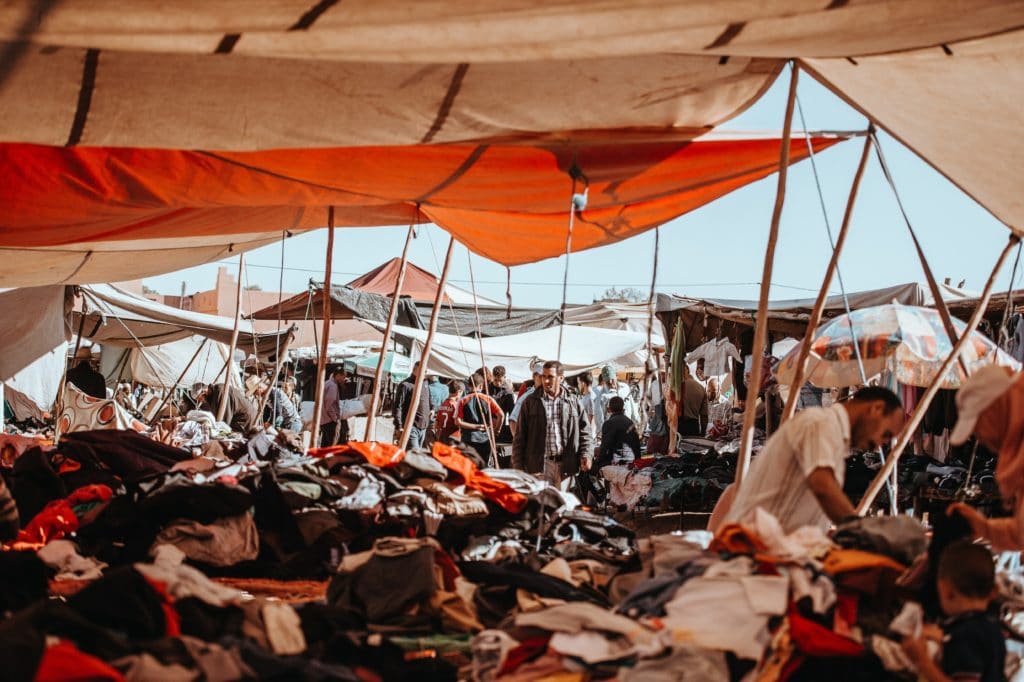
In many countries bargaining is okay and even expected. However, always keep in mind that the sellers need to make a living of their products.
When you make a deal, be fair and don’t force someone to sell below value. Remember, your money is supposed to have a positive impact.
20. Consider Traveling In Shoulder Season
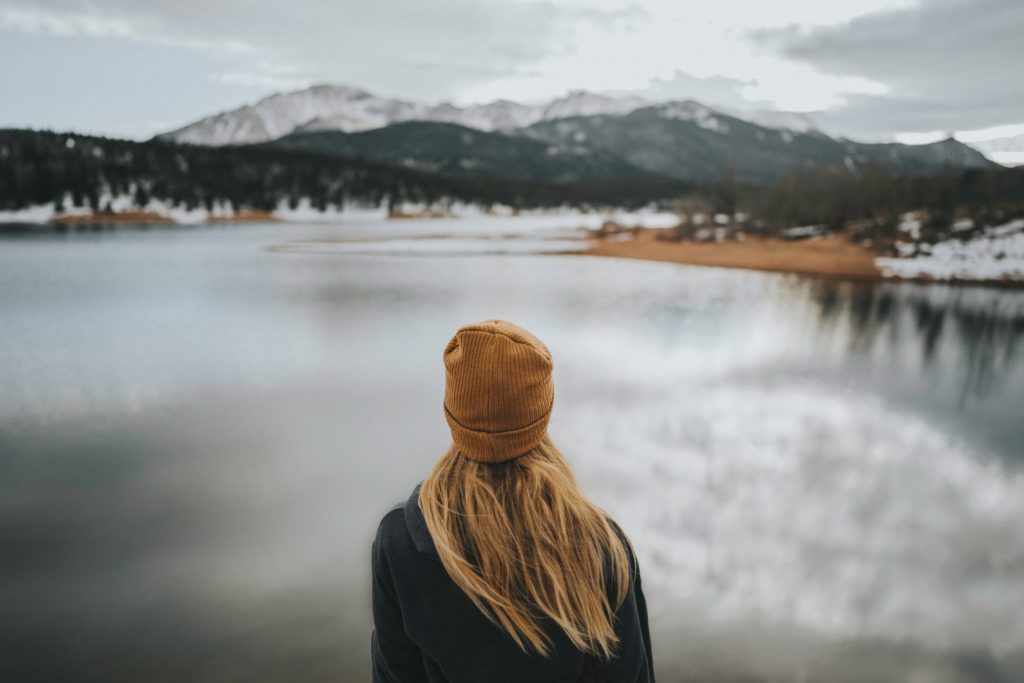
Tourism operators don’t like to admit it, but overtourism is a problem. Too many travelers in peak season are pushing the capacities of the world’s tourist destinations. Among other issues, pollution levels rise and stress on natural environments increases.
Responsible tourism in off- or shoulder season has the potential to spread the impact a little. Plus, it benefits the local economy year-round.
Moreover, prices are lower and you don’t have to share the most beautiful spots with tons of tourists.
21. Don’t Be An Idiot

Have you heard of the guy who tried to smuggle a penguin from Boulders Beach in Cape Town back home to keep it as a pet? Or the family father who headbutted a local in Venice who politely asked him to step off his private boat where he was taking selfies? Or the couple who bathed naked in holy water of a Hindu temple in Bali?
Whatever you do, don’t be that person.
If locals have a negative impression of tourists and their behavior, we are not acting responsibly. Traveling is enjoyable only if locals and travelers work together to protect our planet, its wildlife and communities.
22. Spread the word
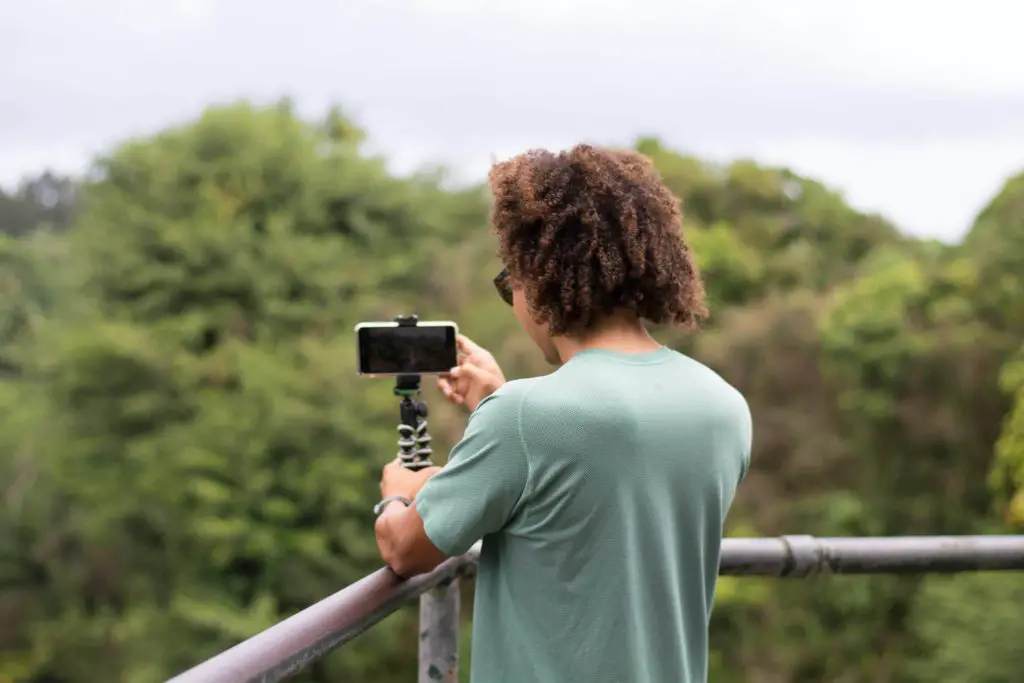
Communication is key. Now that you know how to be a responsible tourist, discuss it with your friends and family.
Use your Social Media and other platforms to raise awareness of the tourism industry’s issues and potentials.
The Bottom Line
We can’t deny that, to some degree, each tourist has a negative effect on the environment. That means that we will never be completely green or entirely socially responsible.
However, as the travel industry is expected to grow immensely in the upcoming decades, we have the power to create a change towards a more sustainable planet.
The world deserves responsible tourism.
Responsible Tourism Documentaries
Get inspired to become a more responsible tourist with the following documentaries.
Are you ready to become a more responsible tourist? What are your experiences with responsible tourism?
Let us know in the comment section below!
Further reading:


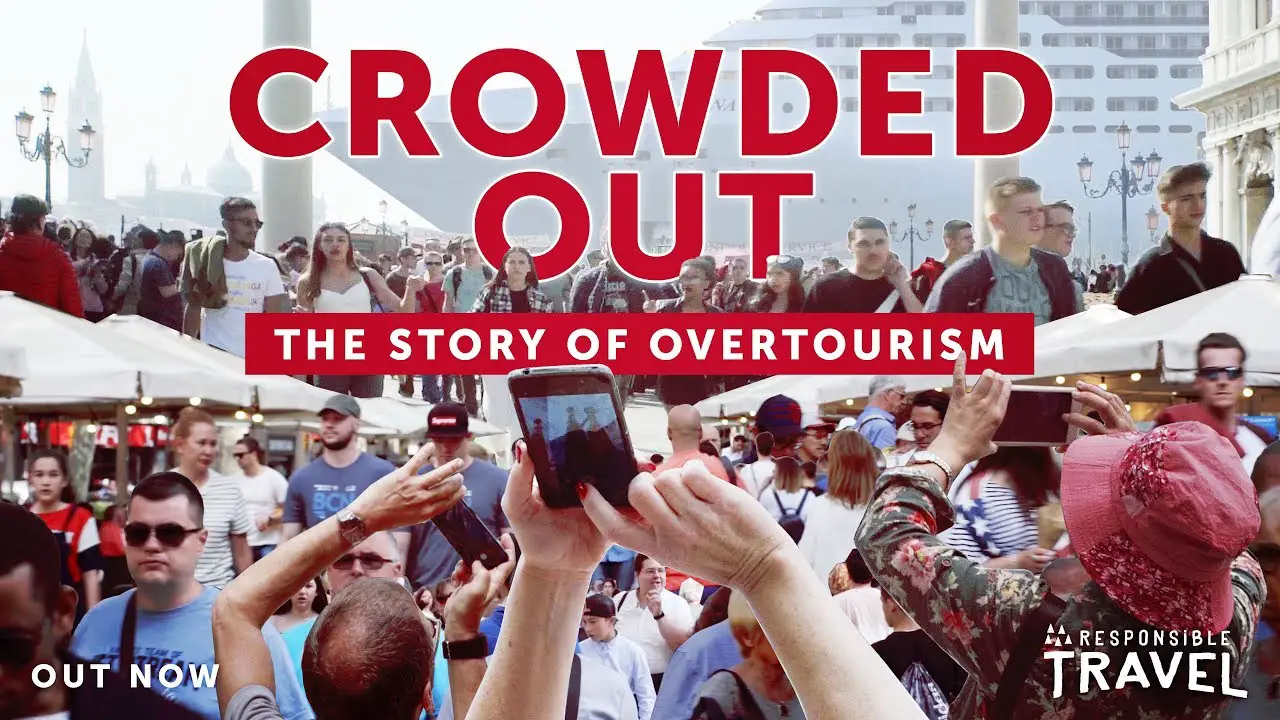

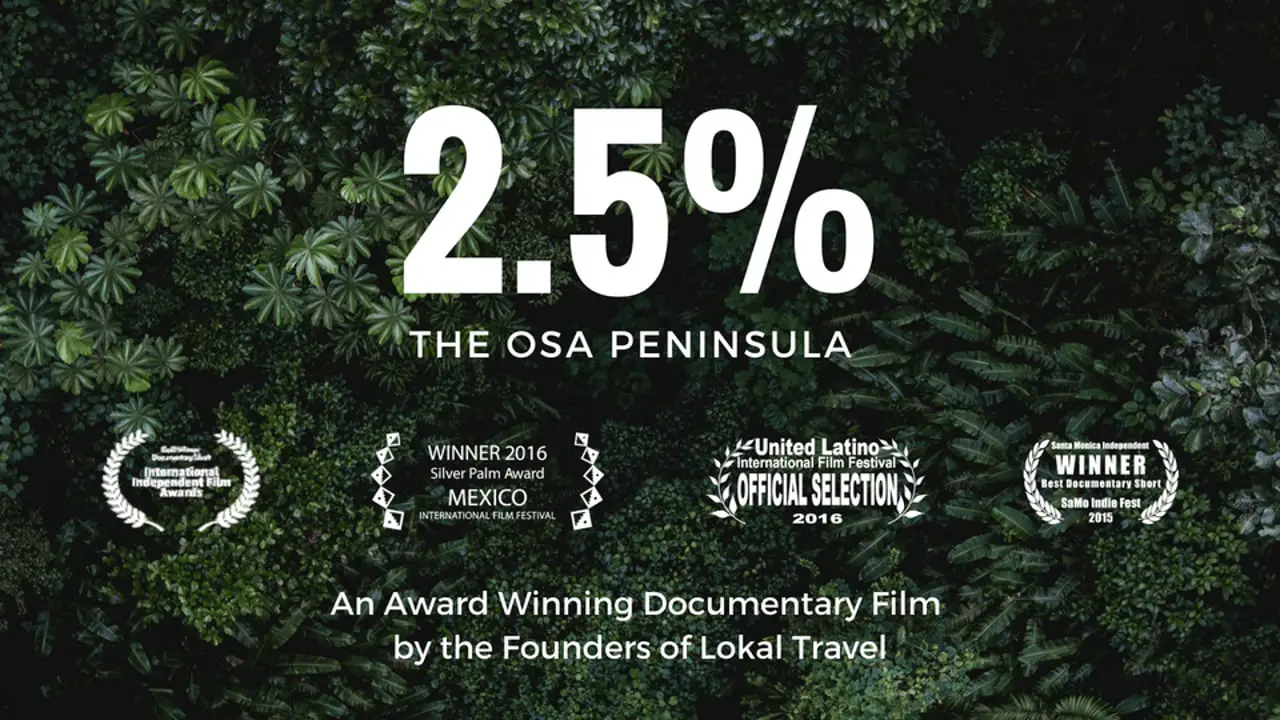
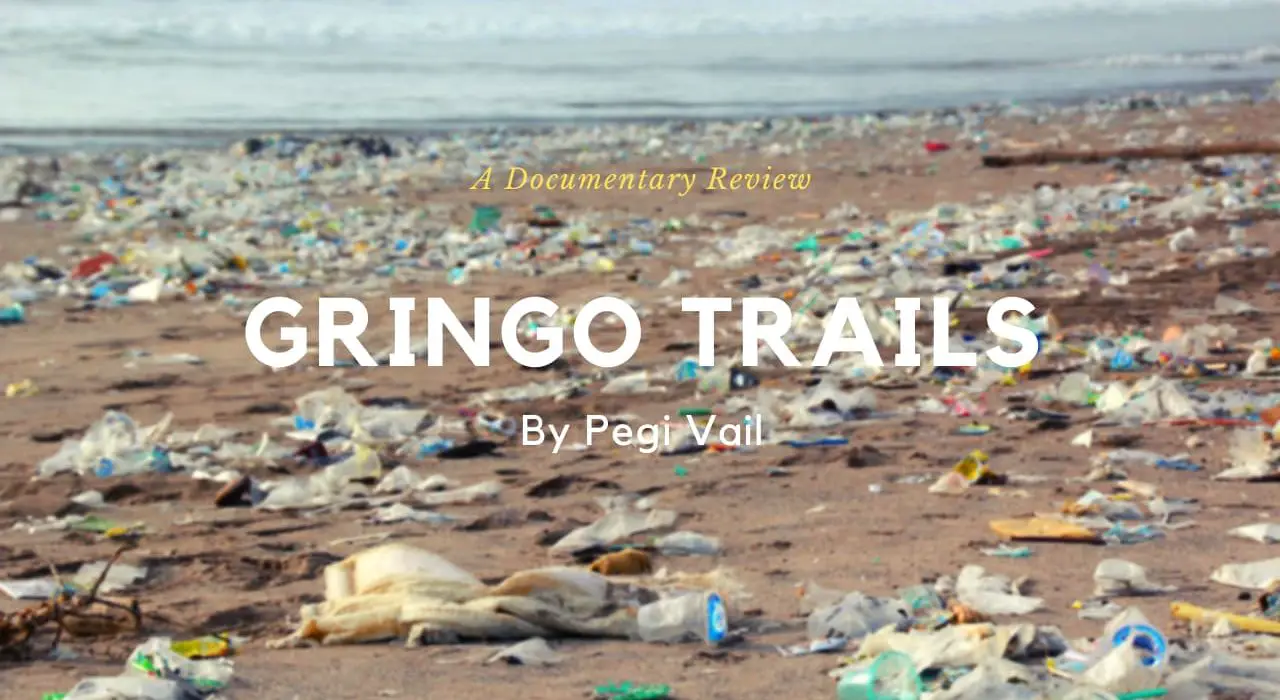
James
Wednesday 16th of September 2020
A really, really great and insightful article, not to mention hugely informative. Well done :-)
Leoni
Wednesday 16th of September 2020
Thank you, James! :-)